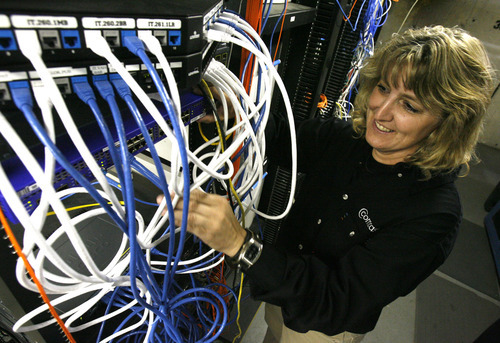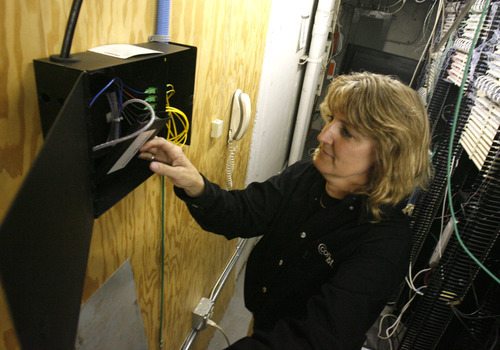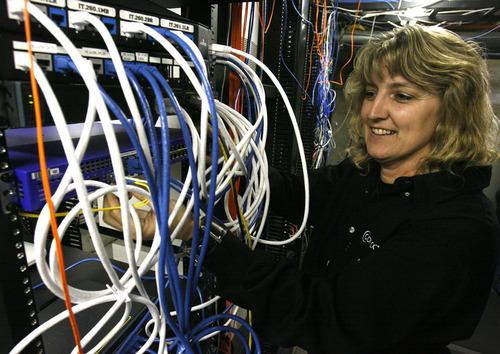This is an archived article that was published on sltrib.com in 2011, and information in the article may be outdated. It is provided only for personal research purposes and may not be reprinted.
Comcast Corp. is rolling out a "metro ethernet" product in Utah that it has tailored to meet the bandwidth needs of midsized businesses.
The service marks the company's latest salvo in Utah's increasingly competitive broadband market. And it follows Comcast's announcement in March that it was launching a 100-megabit-per-second, high-speed Internet product for the state's small businesses.
"We started out in that one- to 20-employee space, and we've done very well there," said Kevin O'Toole, of Product Management and Strategy for Comcast Business Services. "But we knew from the onset our network, which reaches into [almost] all the business parks and suburbs in our service territory, could meet the needs of bigger businesses, school districts and local governments."
A metro ethernet is a telecommunications system set up to cover large metropolitan areas. The network can be used to connect businesses to the Internet or to connect a company's branch offices to its internal computer network.
Comcast quietly rolled out the service, which O'Toole describes as the "next-generation, wide-area data networking service," to a limited number of its customers earlier this year in a test run.
The new service uses Comcast's rapidly expanding fiber-optic network and can deliver "scalable" speeds up to 10 gigabytes per second depending upon the needs of individual businesses. One example would be when a convention is booked at a hotel and its organizers need extra bandwidth for a brief time for attendees.
"The service is available in Utah and 19 other major U.S. markets," said Comcast Utah spokesman Ray Child. "And our plan is to expand into additional markets in the months ahead."
Comcast isn't the only provider going after the midsized business and local government market.
Early last month, the financially challenged Utopia fiber-optic system announced it would use $16 million in federal stimulus money to connect 400 institutions — schools, health care providers, public-safety agencies and government facilities — in eight communities to its network.
Utopia said those connections would be completed over the next two years.
Metro ethernet services such as Comcast's increasingly are being offered as alternatives to the widely used but slower T1 lines that many businesses employ to connect to the Internet, said Cindy Whelan, an analyst at Current Analysis in Sterling, Va.
"It is an up-and-coming service, and there are a number of companies that offer it," Whelan said. "It is at a lower price than T1 lines, and you can scale up to higher capacity when needed."
That scalability was a factor in Stein Ericksen Lodge in Park City signing up for Comcast's service, said IT manager Ben Lee.
In the past, the lodge used T1 lines for its Internet access but that presented a problem during ski season when guests demanded more bandwidth, Lee said. "The only way we could get more was to add more T1 lines — but we only needed that extra capacity during the season, not permanently."
Now, when the lodge needs more bandwidth, the extra capacity is a phone call away, he said.
Comcast's O'Toole said midsized businesses increasingly are adopting more bandwidth-intensive applications such as cloud computing and video conferencing. "And for those companies, having access to a fast connection to the Internet is critical."
Twitter: OberbeckBiz







